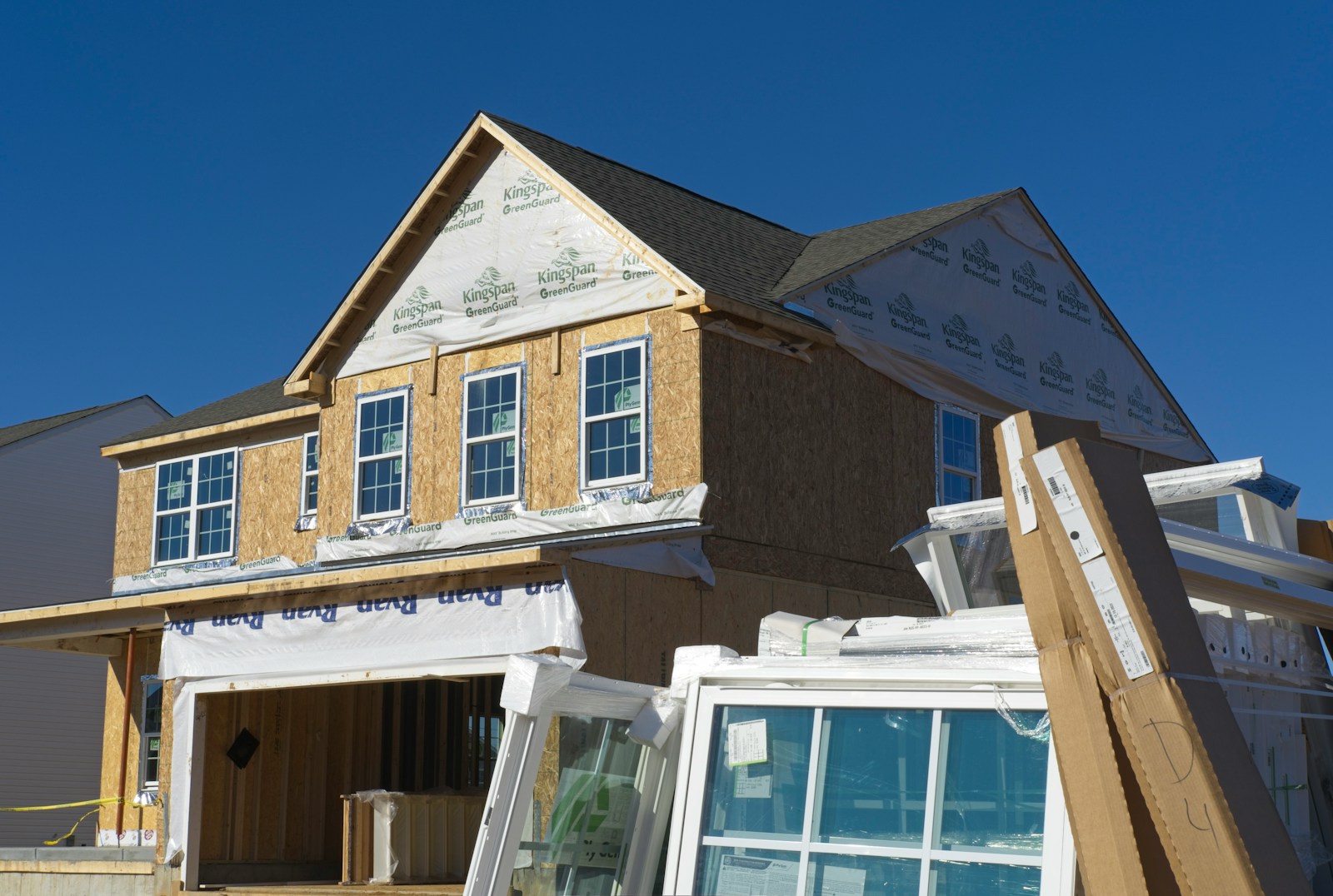Navigating the world of property investment can be tricky. You’re about to embark on a journey that’s filled with potential rewards, but also riddled with pitfalls. Knowing how to find a good property investment is key to making the most of your venture.
You might be wondering, “What makes a property a good investment?” or “How do I spot a diamond in the rough?” Well, you’re in the right place. We’re going to help you sharpen your property hunting skills and equip you with the knowledge you need.
Remember, investing in property isn’t just about buying the cheapest house on the block. It’s about understanding the market, recognizing potential, and making informed decisions. So, let’s get started on your path to successful property investment.
Understanding the Property Market
In the path to lucrative property investment, having a strong grasp of the overall property market plays a crucial role. Essentially, when you know how the market operates, you’re well-equipped to navigate your way to success. Every trend, fluctuation, and phase becomes a part of your long-term strategy.
Market Trends Helping Your Investment
Some trends can hint at if it’s the right time to invest. Here, data is key. It’s not enough to rely on gut feel or personal hunches. You have to accurately analyze market trends. So, what kind of data should you be looking at? – Housing Prices: Check for patterns in residential property prices. Spotting a trend of consistently increasing property prices might indicate it’s a good time to invest. – Rent Trends: Identifying rent trends is equally crucial.
- Economic Indicators: Other economic factors, such as job growth rates, also often correlate with property market health.
It’s through examining these figures and their implications that you can make wise decisions about property investment.
Recognizing Potential within the Property Market
Knowing the numbers isn’t enough. You have to fully understand what they mean for the market as a whole. This might mean tapping into your willingness to take calculated risks and your ability to detect potential. Ask yourself:
- Does a dip in property prices signal an opportunity to buy low? Or is it a red flag, suggesting that now isn’t the right time for investment?
- Are rising rent trends indicative of a strong rental market? Or does it point to a potential bubble that could burst?
Every investor has to answer these questions to diminish uncertainties. By doing so, you’ll start to recognize investment opportunities that others might overlook.
Remember, it’s vital to take time to decode the property market’s tendencies. This patience and persistence will likely reward you as you continue your property investment journey.
Recognizing Potential Investment Opportunities
Moving forward in your property investment journey, Recognizing Potential Investment Opportunities plays a vital role. Seeing property investment possibilities demands a keen eye, discipline, and comprehensive market know-how, which you’d already started to build.
Mature neighborhoods often hold potential that’s not immediately noticeable. By focusing on factors such as location, accessibility to amenities, and neighborhood growth rates, you can uncover opportunities in these regions. Remember, every mature community has its charm – a robust rental market, great educational institutes, or vibrant local businesses. These factors contribute to a property’s rental yield, which is one significant aspect you can’t take for granted.
Below is a quick summary of some pointers to keep in mind:
- Accessibility to Amenities: Proximity to amenities such as shopping centers, schools, and health facilities enhances property value.
- Future Growth Prospects: Potential infrastructure developments, business establishments, and planned city expansion projects affect long-term property value.
- Rental Yield: Stable neighborhoods with an established rental market promise reliable income.
Participating in local investment forums or working with reliable real estate agents can also provide useful insights into finding potential investments. Talking to local property owners and real estate professionals will give you the scoop on the area’s pros and cons.
Engage with investors who have been successful in the same area. Analyzing their investment strategies will further enhance your ability to recognize great opportunities within the market.
While recognizing potential investment opportunities is essential, being able to assess and minimize the risks associated with these opportunities creates a sound foundation for future success. Learn to differentiate between a high-potential property and one that only looks like a steal on the surface.
It may sound daunting initially, but with time and experience, you’ll find that recognizing potential investment opportunities comes naturally. Patience and continuous learning will be your guiding stars in this property investment journey.
Also, learn to make data-driven decisions. Utilize modern technologies, data analysis tools, and platforms to track real estate market trends and make more informed decisions.
Conducting Thorough Research
Workflow matters when it comes to property investment research. Let’s unfold this process step-by-step.
Recognizing Market Indicators
Crafting a strategy that factors in economic indicators can boost your investment outlook. Focus on keeping pace with these indicators to stay informed about the market and property values. These may include broader economic factors such as:
- Inflation rate – Unemployment rate – Interest rates – GDP growth Think of these indicators as pieces of a larger puzzle; when viewed together, they can provide a comprehensive picture of the current market status.
Aligning Real Estate Trends with Your Strategy
You are not just investing in a property; you’re investing in a location. Understand the local and national housing trends. Don’t ignore the potential impact of notable market trends on your investment property. Keep an eye out for:
- Average property prices
- Rent rates
- Population growth rate
- Future growth prospects
By folding these indicators into your strategy, you’re more apt to see the bigger picture and catch any red flags.
Risks and Rewards Assessment
An important aspect of research is understanding the potential risks and rewards of various investment opportunities. For any potential investment, look into:
- Accessibility to amenities
- Rental yield
- Property condition
- Loan types and their conditions
A detailed risk-reward analysis can help you avoid potential pitfalls and pursue scenarios with the most promising outcomes.
Building a Network
Property investment isn’t a solo endeavor. Foster relationships with local investors, real estate agents, and investment forums. Their insights and experiences can offer valuable context to your research. Just remember–don’t adopt their strategies outright; adapt them to fit your situation and goals.
With your thorough research, you’re stacking the odds of success in your favor. Resist the urge for quick returns. Property investing requires patience; be prepared to learn, adapt, and steadily tread toward your investment goals.
Assessing the Property’s Value
Primarily, there are two ways of estimating this value: Market Value and Investment Value.
Market Value is what buyers in the market are willing to pay for the property. Here, similar sales in the neighborhood, also known as Comparables or “Comps”, can be highly indicative. But remember, it’s never just about the square footage or the number of rooms. Several factors can influence this value. These may involve:
- Location
- Quality of surrounding amenities
- Access to transportation
- Crime rates
On the other hand, Investment Value, is more personal. This value assesses what the property is worth to you as an investor. It may align with the market value, or it might be less if you’ve got reasons to believe the market is overvaluing the property. A higher investment value might suggest that you see some potentials that are not currently reflected in the market price.
Striking the right balance between these two estimations needs a good level of judgment and understanding of the market. So it’s important to invest time and energy in developing this understanding. With consistent practice, you’ll get better at it.
Before putting down any money, it’s crucial to validate your valuation with a professional property appraisal. Professional appraisers look at a myriad of factors, even those you didn’t consider in your estimation.
Stay patient, keep learning, and be always ready to adapt. As you continue in your property investment journey, trust your instincts, but also verify your assumptions. Property investment is equally an art as it is a science. As such, expertise and mastery take time. And remember, every informed decision you make brings you one step closer to finding a profitable property.
Making Informed Investment Decisions
When seeking a potentially profitable property investment, it’s imperative to make informed decisions. So how do you do this? Knowledge is power in property investment. Let’s explore the components of informed decision-making.
Begin with analyzing real estate data. Having access to accurate, up-to-date data can present a clear picture of the property market. This encompasses things like local and national market trends, interest rates, and the economic climate. In fact, investor, Scott Paul, says engaging with data and staying updated helps him gain a competitive edge. Provide concrete evidence to back up your decisions, which should rely on hard numbers and facts.
Reliable data sources can include:
- Local property sales records
- Information from real estate agents
- Property investment seminars, newsletters, and publications
- Data from property investment platforms and analytic services
Your analysis doesn’t stop at sales data, though. Understanding the property’s condition and location also greatly impacts its investment worth. Factors such as the property’s age, repair needs, and neighborhood can affect not only the price but also its attractiveness to potential renters if you opt for rental income.
After gathering and analyzing your data, the next step is making the decision. At this stage, you’ve already identified potential properties. Now you need to determine which one aligns best with your investment strategy and risk tolerance. Remember to consider both the purchase price and potential returns. Ask yourself questions like:
- Is the property worth the asking price?
- Will you be able to afford necessary repairs or renovations?
- What are the potential rental returns?
- Is there potential for property value appreciation?
Finally, never underestimate the significance of patience and persistence. You might not find the perfect property right away, but that’s alright. Property investment isn’t a sprint; it’s a marathon. Continual learning and adjustment of your strategy based on market conditions is the backbone of long-term success. Just keep in mind – every investor has different goals and risk appetites. It’s about finding what works best for you.
Conclusion
So, you’ve got the tools now to navigate the property investment landscape. Remember, understanding the property market is key. Stay ahead by analyzing market indicators and aligning your strategies with real estate trends. It’s crucial to build a strong network and make informed decisions based on thorough research. Consider the property’s condition, location, and potential returns before investing. And most importantly, be patient, persistent, and never stop learning. Property investment isn’t a sprint, it’s a marathon. With these strategies in your arsenal, you’re well on your way to finding a good property investment.
Frequently Asked Questions
What is the importance of understanding the property market for successful investment?
Understanding the property market is crucial for making informed investments. It involves analyzing market indicators and economic factors to predict potential shifts in property values.
Why is it crucial to align real estate trends with investment strategies?
Aligning real estate trends with investment strategies helps to identify opportunities and potential risks, optimizing your investment success rate.
What is the role of building a network in property investment?
Building a network can help you access vital market insights, property listings, and investment strategies. Bonds with local investors, real estate agents, and investment forums can prove valuable.
How can decision-making based on real estate data enhance investment success?
Investment decisions driven by real estate data can help recognize a property’s potential returns, taking into account its condition and location.
What is the significance of patience and continual learning in property investment?
Patience allows time for property investments to mature and generate returns, while continual learning helps in gaining insights and staying updated with market trends.




